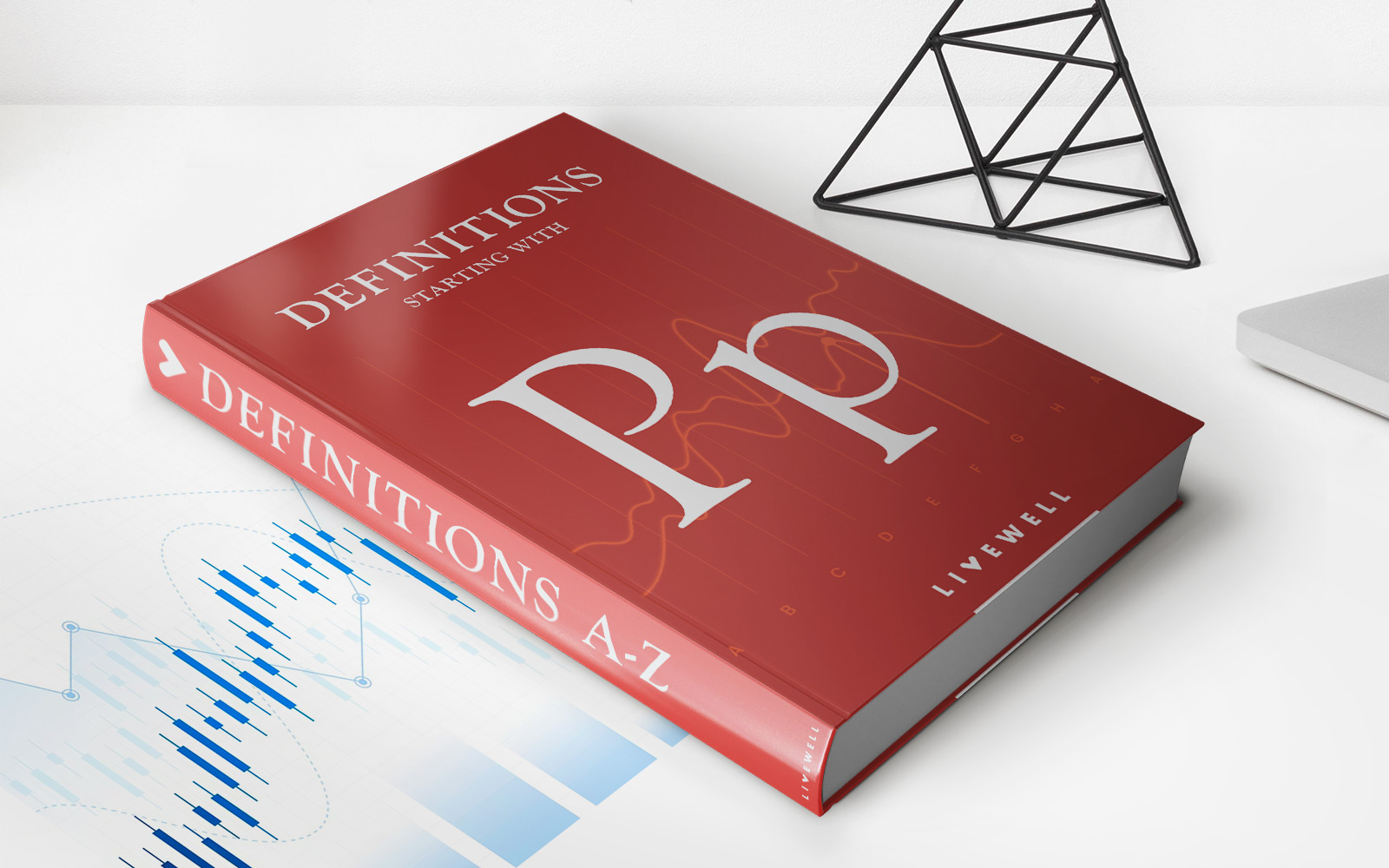

Finance
How Does Ticket Insurance Work?
Modified: December 30, 2023
Discover how ticket insurance works and protect your finances when purchasing event tickets. Learn how this valuable coverage can provide peace of mind and safeguard your investment.
(Many of the links in this article redirect to a specific reviewed product. Your purchase of these products through affiliate links helps to generate commission for LiveWell, at no extra cost. Learn more)
Table of Contents
- Introduction
- What is Ticket Insurance?
- Why Do People Get Ticket Insurance?
- How Does Ticket Insurance Protect You?
- Types of Coverage Offered by Ticket Insurance
- How to Purchase Ticket Insurance
- How Does the Claims Process Work?
- Limitations and Exclusions of Ticket Insurance
- Is Ticket Insurance Worth It?
- Conclusion
Introduction
Welcome to the exciting world of ticket insurance! If you’ve ever wondered how to protect yourself and your investment when purchasing event tickets, you’ve come to the right place. In this article, we’ll dive into the ins and outs of ticket insurance, exploring what it is, why people get it, and how it works to safeguard your experience.
Attending live events such as concerts, sports games, and theater performances can be an exhilarating experience. However, unexpected circumstances can sometimes arise that prevent us from attending these highly anticipated events. This is where ticket insurance comes in handy, providing peace of mind and financial protection should things not go as planned.
Whether you’re an avid concertgoer, a sports enthusiast, or simply enjoy the thrill of attending live performances, ticket insurance can be a valuable asset. But what exactly is ticket insurance, and why do people opt for it?
Ticket insurance is a type of coverage that offers financial protection in the event that you are unable to attend an event for reasons specified in the policy. These reasons typically include illness, injury, death, severe weather conditions, or other unforeseen circumstances. By purchasing ticket insurance, you can recover some or all of the costs associated with your tickets.
So why do people get ticket insurance? The answer is simple – it provides an added layer of protection. Life is unpredictable, and even the most meticulously planned events can be derailed by unforeseen events. Ticket insurance offers a safety net, allowing ticket holders to recoup their investment and minimize potential financial losses.
Now that we have a better understanding of what ticket insurance is and why people choose to get it, let’s delve into the specifics of how ticket insurance works to protect you in the event of unforeseen circumstances. Join us as we explore the various types of coverage offered by ticket insurance and the claims process that follows.
What is Ticket Insurance?
Ticket insurance is a specialized form of insurance that provides coverage for event ticket holders in case they are unable to attend an event due to unforeseen circumstances. It helps protect the financial investment made in purchasing event tickets by offering reimbursement or compensation for the ticket costs.
When you purchase ticket insurance, you are essentially buying a policy that outlines the circumstances under which you can claim reimbursement for your tickets. These circumstances often include personal illness or injury, a death in the family, severe weather conditions, or other unexpected events that make attending the event impossible or impractical.
While the specific terms and conditions of ticket insurance can vary depending on the provider and the event, the fundamental purpose is to ensure that ticket holders are not left out of pocket if something unexpected occurs. This can be especially valuable when purchasing tickets to highly sought-after events or investing a significant amount of money in a live performance.
It’s important to note that ticket insurance typically covers the face value of the tickets, as well as any associated fees, such as service charges or booking fees. However, it usually does not cover additional expenses, such as travel or accommodation costs. Therefore, it’s advisable to carefully review the terms of the policy to understand exactly what is covered and what is not.
Ticket insurance can be purchased at the time of ticket purchase or up until a specified timeframe before the event. The cost of ticket insurance is typically based on a percentage of the ticket price and varies depending on factors such as the ticket cost, event type, and coverage options selected.
Now that we understand the basics of ticket insurance, let’s explore why people choose to get ticket insurance and how it can protect you in unforeseen circumstances.
Why Do People Get Ticket Insurance?
There are several reasons why people choose to get ticket insurance when purchasing event tickets. Let’s explore some of the key motivations behind this decision:
- Protection against unforeseen circumstances: Life is unpredictable, and sometimes situations arise that make attending an event impossible or impractical. Ticket insurance provides a safety net, offering financial protection in case of personal illness, injury, or unexpected events that might prevent you from attending. Whether it’s falling ill on the day of the event or facing severe weather conditions, ticket insurance ensures that your investment is not lost.
- Freedom to plan ahead: When you purchase tickets for an event well in advance, you may not know what the future holds. Ticket insurance allows you to plan with confidence, knowing that if circumstances change, you have the flexibility to cancel or reschedule without suffering significant financial loss. This gives ticket holders peace of mind and the freedom to make informed decisions without the fear of losing their investment.
- Valuable for high-demand events: Some events, such as major concerts or championship games, generate immense excitement and often sell out quickly. This creates a high-demand market where ticket prices can soar. Purchasing ticket insurance for these coveted events not only protects your financial investment but also allows you to confidently secure tickets knowing that if something unexpected arises, you won’t be left empty-handed.
- Provides a safety net for group bookings: Attending events with a group of friends or family can be a memorable experience. However, coordinating schedules and ensuring everyone can attend can be challenging. Ticket insurance can be particularly valuable in group bookings, as it covers the costs for individuals who may be unable to attend due to unforeseen circumstances. This ensures that everyone in the group is protected, and the financial burden is minimized.
- Peace of mind and financial security: Ultimately, ticket insurance offers peace of mind and financial security to ticket holders. It eliminates the worry and stress associated with the possibility of losing a significant investment due to unforeseen events. Whether it’s a sudden illness, a family emergency, or other unexpected circumstances, having ticket insurance in place provides comfort and reassurance that your investment is protected.
By investing in ticket insurance, individuals can confidently purchase event tickets, knowing that they have a safety net in place. It is a small price to pay for the peace of mind and financial protection that comes with knowing your investment is secure, regardless of what life throws your way.
Now, let’s dive deeper into how ticket insurance works and how it protects you in case you need to make a claim.
How Does Ticket Insurance Protect You?
Ticket insurance is designed to protect you financially in the event that unforeseen circumstances prevent you from attending an event. Here’s a closer look at how ticket insurance works to safeguard your investment:
Reimbursement for ticket costs: One of the primary ways ticket insurance protects you is by offering reimbursement for the cost of your tickets. If you are unable to attend the event due to a covered reason specified in the policy, you can file a claim with the insurance provider. Upon approval, you will receive a refund for the face value of the tickets as well as any associated fees, such as service charges or booking fees.
Flexible cancellation and rescheduling: In addition to reimbursement, ticket insurance may also provide flexibility when it comes to canceling or rescheduling your tickets. Depending on the policy, you may be able to request a one-time change in the event date or even transfer the tickets to another eligible event within a certain timeframe. This flexibility allows you to adapt to changing circumstances without incurring additional costs or losing your ticket investment entirely.
Protection against unforeseen events: Ticket insurance typically covers a range of unforeseen circumstances that may prevent you from attending the event. These may include personal illness or injury, the death of a family member, travel disruptions, severe weather conditions, or other unexpected situations specified in the policy. By providing coverage for these events, ticket insurance helps mitigate the financial impact of such occurrences.
Peace of mind for high-priced tickets: Tickets to certain events, such as music festivals or major sporting events, can come with a hefty price tag. Ticket insurance offers peace of mind when making a significant investment in these high-priced tickets. If something unexpected arises, such as a sudden illness or a travel disruption, you can rest assured knowing that your financial investment is protected.
Support throughout the claims process: When filing a claim with ticket insurance, you can expect support from the insurance provider throughout the process. This includes assistance in gathering the necessary documentation, submitting the claim, and addressing any questions or concerns you may have. The insurance provider aims to make the claims process as smooth and straightforward as possible so that you can receive timely reimbursement.
It’s important to note that ticket insurance policies may have specific terms, limitations, and exclusions. These can vary depending on the provider and the type of event. It is essential to carefully review the policy details to understand the coverage and any requirements for filing a claim.
Now that we understand how ticket insurance protects you, let’s explore the different types of coverage offered by ticket insurance.
Types of Coverage Offered by Ticket Insurance
When it comes to ticket insurance, there are various types of coverage that insurance providers may offer. These coverage options are designed to cater to different needs and ensure comprehensive protection for ticket holders. Let’s explore some of the common types of coverage offered by ticket insurance:
- Illness or Injury: This is one of the most common types of coverage offered by ticket insurance. It provides reimbursement if you or a covered individual on your policy are unable to attend the event due to a personal illness, injury, or medical emergency. It’s important to note that pre-existing medical conditions may have specific coverage limitations, so it’s advisable to review the policy details carefully.
- Death in the Family: Ticket insurance may also cover instances where you or a covered family member experience the death of an immediate family member. This coverage ensures that you are not financially burdened by the loss during an already difficult time.
- Severe Weather Conditions: Events can be affected by severe weather conditions such as hurricanes, blizzards, or other natural disasters. Ticket insurance with weather coverage protects you in case the event is postponed, rescheduled, or canceled due to these circumstances. It ensures that you are not left out of pocket for your ticket expenses.
- Travel Disruptions: If you encounter travel disruptions such as flight cancellations, train delays, or other unforeseen circumstances that prevent you from reaching the event venue, ticket insurance with travel coverage can provide reimbursement. This ensures that you are protected in case your travel plans are unexpectedly hindered.
- Event Cancellation: In the unfortunate event that the entire event is canceled, ticket insurance may provide coverage to refund the ticket costs. This could be due to reasons beyond your control, such as the event organizer’s bankruptcy or a force majeure event.
- Event Postponement or Rescheduling: If the event is postponed or rescheduled to a date that conflicts with your availability, ticket insurance can offer flexibility. Depending on the policy, you may be able to request a one-time change in the event date or receive a refund if the rescheduled date no longer works for you.
It’s important to carefully review the terms and conditions of the ticket insurance policy to understand the specific coverage options and any limitations that may apply. Each insurance provider may have variations in their coverage offerings, so be sure to choose a policy that aligns with your needs and expectations.
Now that we have explored the types of coverage available, let’s discuss how you can purchase ticket insurance and what the process entails.
How to Purchase Ticket Insurance
Purchasing ticket insurance is a straightforward process that can be done at the time of buying your event tickets. Here are the steps to follow when purchasing ticket insurance:
- Select your ticket: Begin by selecting the event and the specific tickets you wish to purchase. This can typically be done through official ticketing platforms or authorized resellers.
- Check for insurance option: Look for the option to add ticket insurance during the ticket purchase process. It may be presented as an add-on or an additional checkbox to select.
- Review the coverage details: Once you’ve selected the ticket insurance option, review the coverage details provided. This includes understanding the specific circumstances covered, any limitations or exclusions, and the cost associated with the insurance.
- Provide necessary information: Depending on the ticket insurance provider, you may be required to provide certain personal information such as your name, contact details, and sometimes additional details like age or date of birth. This helps the provider associate the insurance policy with your ticket purchase.
- Pay for the insurance: Proceed to the payment step and pay the additional cost for the ticket insurance. Most ticket insurance options have a designated fee, often calculated as a percentage of the ticket price.
- Receive confirmation: Once the payment is complete, you will typically receive a confirmation of your ticket purchase and the added ticket insurance. It is essential to retain this confirmation for future reference and in case you need to file a claim.
It’s worth noting that some ticket insurance providers may also offer the option to purchase insurance for tickets you have already bought. In such cases, you may need to provide proof of purchase or other required information to secure coverage.
When purchasing ticket insurance, it’s crucial to carefully read the terms and conditions of the insurance policy. This ensures that you understand the coverage, any specific requirements for filing a claim, and any limitations or exclusions that may apply.
Now that you know how to purchase ticket insurance, let’s explore the claims process and how it works if you need to utilize your coverage.
How Does the Claims Process Work?
The claims process for ticket insurance can vary depending on the insurance provider and the specific policy terms. However, here is a general overview of how the claims process typically works:
- Notify the insurance provider: As soon as you know that you will not be able to attend the event due to a covered reason, notify the insurance provider. This can usually be done through their designated claims process, which may include submitting a claim form online, contacting their customer service, or following specific instructions outlined in the policy.
- Gather the required documentation: The insurance provider will usually require specific documentation to support your claim. This may include medical certificates, death certificates, travel disruption proof, or any other relevant documentation outlined in the policy. Make sure to gather all necessary documents that verify the circumstances preventing you from attending the event.
- Submit the claim: Once you have all the required documentation, submit your claim to the insurance provider as instructed. This can often be done online or by sending the completed claim form and supporting documents via email or mail.
- Provide additional information if needed: During the claims process, the insurance provider may request additional information or clarification to assess your claim fully. Be prepared to provide any necessary details promptly to avoid delays in the processing of your claim.
- Wait for claim evaluation: After submitting your claim, the insurance provider will evaluate the information and documentation provided. This evaluation process may take some time, depending on the complexity of the claim and the volume of claims being processed.
- Receive claim decision: Once the evaluation is complete, the insurance provider will notify you of their decision regarding your claim. If approved, you will receive instructions on how to receive reimbursement for the eligible expenses covered by the policy.
- Receive reimbursement: If your claim is approved, you will receive reimbursement for the eligible expenses according to the terms of your ticket insurance policy. The reimbursement may be in the form of a direct deposit, a check, or another method specified by the insurance provider.
It’s important to note that the claims process may have specific timelines and requirements outlined in the policy. Adhering to these guidelines and promptly submitting all necessary documentation will help ensure a smooth and efficient claims experience.
Remember to retain copies of all documents submitted and correspondences with the insurance provider throughout the claims process. These records serve as evidence and documentation of your claim, should any further inquiries arise.
Now that we understand the claims process, let’s explore the limitations and exclusions of ticket insurance.
Limitations and Exclusions of Ticket Insurance
While ticket insurance provides valuable coverage and protection, it is important to be aware of the limitations and exclusions that may apply. Here are some common limitations and exclusions to consider:
- Excluded events or circumstances: Ticket insurance policies may have specific events or circumstances that are excluded from coverage. These exclusions could include certain types of events, acts of terrorism, civil unrest, or other situations specified in the policy. It is crucial to carefully review the policy to understand any limitations and exclusions that may apply.
- Pre-existing conditions: Some ticket insurance policies may have limitations on coverage related to pre-existing medical conditions. This means that if your inability to attend the event is directly linked to a pre-existing condition, you may not be eligible for reimbursement. Review the policy terms to understand the implications regarding pre-existing medical conditions.
- Intentional acts or misconduct: Ticket insurance typically does not cover situations where the ticket holder intentionally causes their own inability to attend the event or engages in misconduct. This includes situations such as self-inflicted injuries or participating in illegal activities.
- Secondary market ticket purchases: Some ticket insurance policies may not cover tickets purchased from secondary market sources or unauthorized ticket resellers. It is important to ensure that your ticket purchase is from a reputable and authorized source to ensure coverage under the ticket insurance policy.
- Limited coverage for additional expenses: While ticket insurance generally covers the face value of the tickets and associated fees, it often does not cover additional expenses such as travel, accommodation, or other related costs. It is important to understand what expenses are included in the coverage and what expenses may need to be incurred independently.
- Claims submission deadlines: Ticket insurance policies often have specific timelines for submitting claims. Failing to meet these deadlines may result in the denial of your claim. It is essential to familiarize yourself with the policy requirements and ensure you submit your claim within the specified timeframe.
These limitations and exclusions may vary depending on the ticket insurance provider and the specific policy terms. It is crucial to carefully read and understand the policy details before purchasing ticket insurance to ensure that you have a clear understanding of what is covered and any potential restrictions or exclusions that may apply.
Now that we have explored the limitations and exclusions, let’s discuss whether ticket insurance is worth it for ticket holders.
Is Ticket Insurance Worth It?
Whether ticket insurance is worth it for you depends on several factors, including your personal circumstances, the cost of the tickets, and your comfort level with potential risks. Here are some considerations to help you determine if ticket insurance is worth the investment:
Value of the tickets: If you have purchased expensive tickets for a highly anticipated event, the cost of ticket insurance may be a small price to pay for the peace of mind it provides. Ticket insurance ensures that you can recoup your investment if unforeseen circumstances prevent you from attending the event.
Risk of unforeseen events: Consider the likelihood of unforeseen events occurring that may hinder your ability to attend the event. If you are concerned about personal illness, family emergencies, or travel disruptions, ticket insurance can offer protection and financial security in these situations.
Flexibility and cancellation policies: Review the refund and cancellation policies of the event organizer. If their policies are strict and offer little or no refunds, ticket insurance can provide an added layer of flexibility. It allows you to cancel or reschedule without a significant financial loss, giving you more peace of mind when making your ticket purchase.
Group bookings: If you are attending the event with a group of people, ticket insurance becomes even more valuable. It can cover individuals who are unable to attend due to unforeseen circumstances, ensuring that everyone’s investment is protected and minimizing any financial burden for the entire group.
Personal circumstances: Consider your own health, job stability, and other personal factors that may increase the risk of needing to cancel or reschedule your attendance. If you have a history of medical issues or work in an industry with unpredictable schedules, ticket insurance could be a wise investment to protect against these uncertainties.
Peace of mind: Lastly, ticket insurance offers peace of mind. Knowing that your investment is protected and that you have the option to cancel or reschedule without losing significant funds can bring a sense of comfort and confidence when purchasing event tickets.
Ultimately, the decision of whether ticket insurance is worth it depends on your individual circumstances and risk tolerance. Carefully weigh the cost of the insurance against the potential benefits and your comfort level with potential risks. Consider the value of the tickets, the likelihood of unforeseen events, and your personal circumstances to make an informed decision.
Now that we have considered the value of ticket insurance, let’s conclude our exploration of this important form of protection for event ticket holders.
Conclusion
Ticket insurance provides valuable protection and peace of mind for event ticket holders. It serves as a safety net, ensuring that you can recoup your investment in case unforeseen circumstances prevent you from attending an event. By understanding what ticket insurance is, why people get it, and how it works, you can make an informed decision about whether it is a worthwhile investment for you.
Throughout this article, we have explored the various aspects of ticket insurance. We started by discussing what ticket insurance is and why people opt for it. We then delved into how ticket insurance protects you in the event of unforeseen circumstances, such as illness, injury, or severe weather conditions.
We also covered the different types of coverage offered by ticket insurance, including coverage for illness, death in the family, severe weather conditions, travel disruptions, and event cancellations or rescheduling. Understanding these coverage options allows you to choose a policy that aligns with your specific needs and concerns.
Furthermore, we discussed how to purchase ticket insurance, the claims process involved, and the limitations and exclusions to be aware of. Being familiar with the intricacies of ticket insurance helps you navigate the process with ease and clarity.
Lastly, we examined whether ticket insurance is worth it for ticket holders. Considering factors such as the value of the tickets, the risk of unforeseen events, and personal circumstances helps you evaluate the benefits and make an informed decision about investing in ticket insurance.
Ultimately, ticket insurance provides financial protection and flexibility to ensure that your investment in event tickets is not lost due to situations beyond your control. It offers peace of mind, allowing you to enjoy the anticipation and excitement of attending events without worrying about potential risks.
Remember to carefully read and understand the terms and conditions of the ticket insurance policy you are considering. Each insurance provider may have variations in their coverage offerings, limitations, and exclusions. By being informed and prepared, you can make the most of your ticket insurance and safeguard your event experiences.
So, when you embark on your next adventure to attend concerts, sports games, or other live performances, consider the value of ticket insurance and decide if it’s the right choice for you. Happy event-going and may your experiences be filled with joy and memorable moments!














